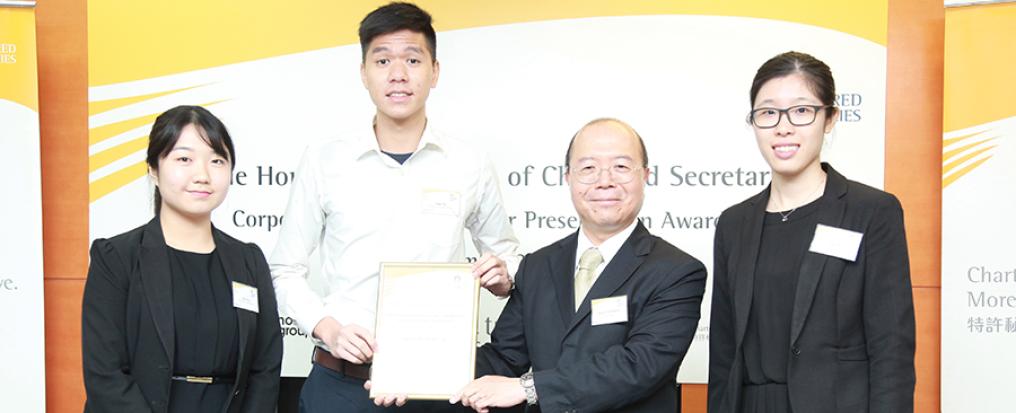The Institute's Takeovers, Mergers and Acquisitions Interest Group launched a new series of guidance notes earlier this year designed to help company secretaries navigate the complexities involved in managing and advising on merger and acquisition (M&A) transactions. CSj takes a look at the second guidance note in this series which addresses the structuring of M&A deals commonly conducted in Hong Kong.
The Institute's Takeovers, Mergers and Acquisitions Interest Group published its first guidance note on M&A transactions in January this year. Following that broad-based introduction to M&As, the second guide in the series, available on the Institute's website:
www.hkics.org.hk, gives detailed guidance on the structuring of M&A transactions.
Structuring options
M&A deals can take many different forms and preparing for a potential M&A deal will require a very careful look at the pros and cons of the types of M&A structures available to ensure that the process has the best chance of success. The new guidance note sketches out the basic differences between the types of transactions commonly seen in Hong Kong and provides a detailed review of the considerations relevant for practitioners involved in the decision of how to structure the M&A transactions, both from the perspective of the buyer and the seller.
Broadly speaking, mergers involve the absorption of one company into another and acquisitions involve, usually, share acquisitions or asset transfers. Where buyers purchase shares, they acquire the customer base, the distribution network and the intangible assets (such as trademarks) of the target company, but also the assets, liabilities and obligations of the target company. By contrast, in an asset acquisition, the buyer acquires only specific, identified assets and liabilities. 'An asset purchase is therefore preferable to the buyer if it is concerned about certain liabilities of the target, for example ongoing litigation, bad debts, employee claims, or any unquantified or unknown liabilities,’ the guidance states.
Negotiating options
From the perspective of the seller, a major issue which needs to be considered in M&A transactions is which negotiation method to opt for. While there are obvious advantages for the seller in using an auction process, the guidance warns that there are potentially significant risks involved.
‘The competitive nature of an auction process is perhaps its greatest advantage as it tends to be regarded as affording a seller the best opportunity of maximising potential sale proceeds,’ the guidance states. It adds, however, that it is difficult, if not impossible, to maintain secrecy about an auction process. 'Plans to dispose of the business are likely to become known to trading partners, employees and competitors. In the case of a listed seller, public knowledge of the auction may affect the price of its shares and an announcement of the intended sale may be required,’ the guidance states.
Moreover, it may not be easy during an auction process to compare competing bids where potential buyers have very different requirements as to structure, conditionality, regulatory approvals, employees, and of course in relation to the drafting of documentation. Other potential disadvantages of an auction process highlighted by the new guidance note include:
- the cost to the seller is usually higher
- a greater degree of planning and process management is required
- the process can exert a more significant drain on management time and attention, and
- the risk of leaks of confidential information are higher.
The guidance also warns of the negative consequences if the auction process fails. In particular, the public knowledge of the failed attempt may damage the business and will prejudice the prospects of a future sale. 'Sellers should therefore assess and balance these difficulties against the perceived benefit of the maximisation of the price,’ the guidance states.
Compliance considerations
A highly useful aspect of the new guidance is its detailed discussion of the compliance issues that commonly arise in M&A deals in Hong Kong.
Shareholder approvals
Company secretaries play a prominent role in the shareholder approval process, including identifying the relevant shareholder approval requirements, presenting the shareholder circular, notice of the shareholder meeting and related documentation, and arranging the shareholder meeting.
The articles of association or any shareholders’ agreement that relates to a buyer or seller that is an unlisted company may include provisions preventing directors from making substantial acquisitions or disposals (whether of shares or assets) without shareholder approval. If the buyer or seller is a company listed in Hong Kong, the Hong Kong listing rules will require shareholder approval if the transaction is of a particular size or is with (or involves) a connected person.
The guidance provides a useful summary of the rules that apply to 'notifiable transactions’ (in Chapter 14 of the Hong Kong listing rules) and those that apply to 'connected transactions’ (in Chapter 14A of the Hong Kong listing rules). Often referred to as the 'size tests’, these rules are designed to ensure that shareholders are informed about significant transactions and transactions involving connected persons and, in certain circumstances, allowed to vote on them. Similar rules apply to companies listed on other stock exchanges.
Regulatory approvals
The particular nature of the target business may require the buyer to obtain approval from a sectoral regulatory authority, whether for a share or asset purchase. Acquisitions of businesses in sectors such as financial services, broadcasting and telecommunications will typically require approval from one or more sectoral regulatory authorities. A key regulatory consideration in M&A transactions is whether any merger control filing in any relevant jurisdiction will be required. This will require a detailed analysis of the turnover of each relevant party and the markets involved and, if filing is required, preparing and submitting the subsequent filing.
Third-party consents
On a share sale, the consent of certain third parties such as the target company's major customers, suppliers or financiers may be required where key contractual arrangements with those third parties are subject to change of control provisions. The guidance points out that the buyer will usually be keen to ensure that it is purchasing a company with the benefit of those key contracts and so has an interest in seeing that such consents are obtained.
On an asset sale, the assets do not pass to the buyer with an acquired entity as they would under a share sale. Instead they are individually acquired and there is a change in ownership of the assets themselves rather than of the company that owns the assets, as on a share sale. Consent to that change of ownership may be required from, depending on the asset in question, third parties such as landlords.
The buyer and the seller may also need approval from any of their own financiers, for example if the terms of their own financing arrangements contain restrictions on their ability to buy or sell assets or companies.
Timing
The new guidance also addresses the important issue of the timetable for M&A transactions. Public M&A transactions (such as the acquisition of a controlling stake in, or the privatisation of a listed company), will be subject to a timetable prescribed by the relevant takeover rules (being the Takeovers Code in Hong Kong's case) and by the court in the case of a court-sanctioned scheme of arrangement. There are no rigid rules that mandate a particular timetable for a private M&A transaction, however.
In general, parties involved in an M&A transaction will want to execute the transaction as quickly as possible, but the guidance points out that there are many potential obstacles to a speedy execution. Negotiations between the parties, for example, may be protracted. The scope of the due diligence exercise conducted can also elongate the transaction timetable prior to signing. Moreover, there may be delays to the buyer putting in place sufficient funding for an acquisition.
Finally, of particular relevance to company secretaries, the process of obtaining shareholder and regulatory approvals as well as third-party consents (described above) will usually have a significant impact on the timing of the transaction. The guidance urges practitioners to give careful consideration to this point. 'The process of obtaining the approval of the shareholders of a listed company and preparing any requisite accountants’ report and valuation report (in particular in the case of a mining business) can impact the timetable of the transaction,’ it points out. 'It is prudent to identify these requirements and plan the related workstreams at the outset of the transaction with a view to ensuring an efficient and smooth transaction.’
The 'Mergers and Acquisitions Guidance Note: Part 2: Structuring of M&A Transactions’ will be published in May 2017 and is available on the Institute's website: www.hkics.org.hk.
SIDEBAR: The Institute's Interest Groups
The Institute's Takeovers, Mergers and Acquisitions Interest Group is one of seven groups set up last year under the Institute's Technical Consultation Panel to look into key areas of corporate governance and company secretarial practice with a view to producing guidance to Institute members and the wider profession and community.
The members of the Takeovers, Mergers and Acquisitions Interest Group are: Michelle Hung FCIS FCS (Chairman), Dr David Ng FCIS FCS, Henry Fung, Kevin Hoi, Lisa Chung and Philip Pong. Mohan Datwani FCIS FCS(PE), Institute Senior Director and Head of Technical & Research, serves as secretary.
The six other Interest Groups cover the following areas: company law; competition law; ethics, bribery and corruption; public governance; securities law and regulation; and technology. In addition to the two guidance notes on M&A transactions, three other guidance notes (on public governance, technology and competition law) are available from the Publications section of the Institute's website:
www.hkics.org.hk.
Please contact Mr Datwani if you have any suggestions about topics relevant to this interest group, or generally, at: mohan.datwani@hkics.org.hk.


